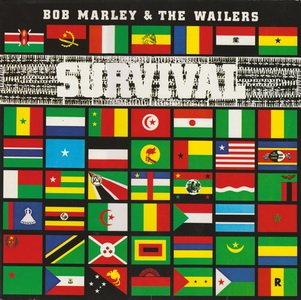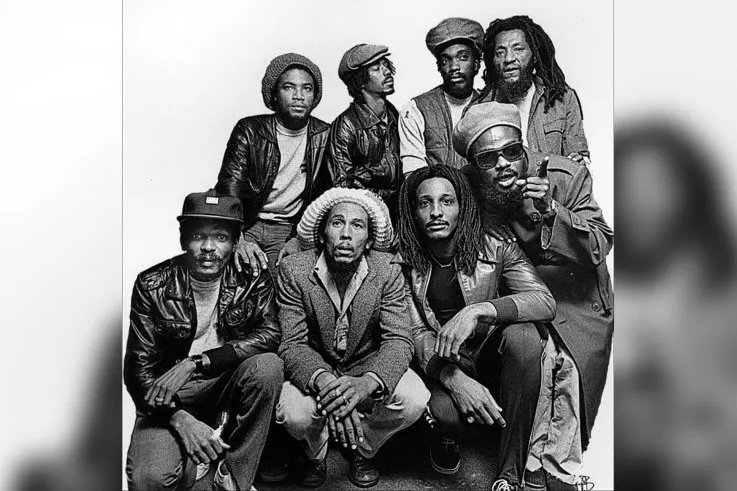The Punk Movement has Always Been a Protest
/Spiky hair, piercings, eyeliner and platforms. Is that what punk’s about? At its core, punk is more than an image. It’s a political protest movement, born from an era of corrupt government, joblessness and class division. It calls out injustices and uses its voice to ‘stick it to the man.’
Origins of unrest
Sources are conflicted on whether to credit New York City, United States of America (U.S.), or London, United Kingdom (UK), with the invention of punk. In the late 1960s, counterculture movements were beginning in both the U.S. and the UK.
In the U.S., young rebels were protesting their country’s involvement in the Vietnam War. They were involved in the Civil Rights movement, pushing to end segregation. They rejected the homogenous ‘American values’ that emerged in the 1950s and ‘60s. They wanted freedom: of expression and from oppression.
In the UK, a crisis of poverty and unemployment caused unrest among the population. London was filthy, the streets covered in garbage and urine. The police were corrupt. Free speech was limited. The working class felt unheard and unvalued, causing many union strikes.
From this unrest came the punk subculture. Youth of the era banded together, using their voices to fight the power and live freely. In the 1970s, punk was born.
American punks
The American punk rock sound emerged from what is now referred to as proto-punk. It was the unkempt sounds of garage bands that called the hippie movement watered-down and the rock’n’roll industry commercial. Bands like The Stooges, Motor City Five and The Velvet Underground led the soundtrack of the anti-establishment American youth. With songs about celebrity culture, sexual liberation and White America, proto-punk led the way for punk rock bands that followed.
New York band Ramones are often credited as the first ever punk rock band. They had a similar sound to their predecessors, but also the style and attitude that now define the genre. Their 1976 self-titled debut album referenced war, corporal punishment, tensions between the U.S. and Cuba, teen unrest and more.
London rebellion
In the UK, the punk movement picked up swiftly. The working class in London was destitute and youth felt no hope for their futures. The controlling rule of the conservative British government was the target of punk fury.
The British punk rock rebellion was led by The Sex Pistols. In 1976, the band burst onto the scene with their first single “Anarchy in the UK.” The song directly rejected the corruption in British society, openly declaring “I wanna be anarchy.” The band’s entire debut album, Never Mind the Bollocks, Here’s the Sex Pistols, criticized the “facist regime” of the British government.
The Clash followed closely behind, using their debut album to criticize class divisions, police brutality and the sheep-like mentality of British citizens.
More than the music
Punk rock was more than just lyrical manifestos, it was a lifestyle. Bands embodied their rebellious values outside of their music.
Manchester band Buzzcocks rejected the mainstream music industry by becoming one of the first punk bands to have their own label. They took their values one step further by printing instructions on how to make music independently on the sleeve of their 1977 EP, Spiral Scratch.
Essex-based band Crass are largely considered a prime example of living the authentic punk lifestyle. Their shows were often fundraisers for progressive causes. Their music was sold with accompanying essays and contacts for rebellious political organisations. The band attended miner strikes and supported anti-war campaigns. They attached maps of British nuclear sites to copies of their single “Nagasaki Nightmare,” putting themselves at risk of government inquiry (Worley 73).
The enduring message of punk
In the 1980s, punk became a global phenomenon. As the style grew, it spawned many subgenres. Bands like Minor Threat and Dead Kennedys brought the more aggressive, fast-paced hardcore punk. Ska punk’s fusion style was popularized by bands like Goldfinger and Sublime. Bikini Kill pioneered the Riot Grrrl sounds, penning anti-patriarchy anthems that brought recognition to female punk. Pop-punk, probably the most popular subgenre today, brought the melodic messages of Blink-182 and Green Day.
In 2014, Against Me! put out their album Transgender Dysphoria Blues. The album spoke freely about lead singer Laura Jean Grace’s transition, cementing the band’s reputation for addressing socio-political issues. The Linda Lindas, a group of teenage punk queens, carry the feminist punk flag with songs such as “Racist, Sexist Boy” and “Resolution/Revolution.”
Though modern punk is more sonically diverse, it carries on the message the subculture has always championed: when the system is corrupt, use your voice to fight it.
Sources cited:
Worley, Matthew. “One Nation Under the Bomb: The Cold War and British Punk to 1984.” Journal for the Study of Radicalism, vol. 5, no. 2, 2011, pp. 65–83, https://doi.org/10.1353/jsr.2011.0015.
Anna Farinaccio is a Professional Writing student at Algonquin College. Born in Ottawa, Ontario, Anna’s parents raised her on a wide range of music. They taught her about the significant role music plays in society and culture. She grew up pursuing many creative passions, such as dance and theatre. These passions led her to a career in writing. Musicians and their influence inspire Anna everyday. A long-time punk fan, the first song she added to her childhood MP3 player was The Clash’s “Train in Vain.”









